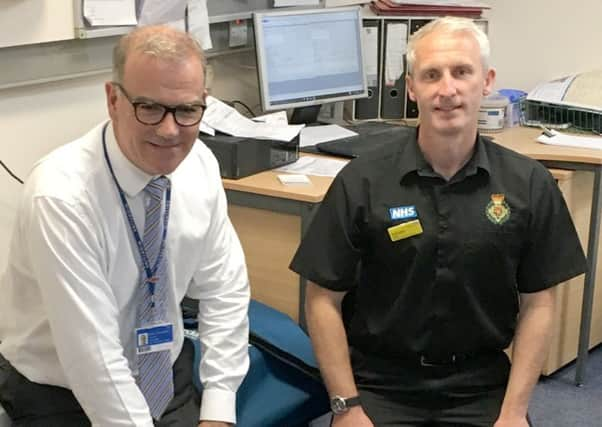Health charity praises Wightlink for buying new life-saving kit


The firm has fitted new, state-of-the-art defibrillators across its ships, catamarans and transport hubs.
And the move has been praised by health charity St John Ambulance (SJA) – which is now urging other businesses to follow suit.
Advertisement
Hide AdAdvertisement
Hide AdLorrin Evans, SJA first aid trainer covering Hampshire said: ‘Well done to Wightlink Ferries for making first aid a top priority for its passengers.
‘With the provision of defibrillators on board its vessels, the company is not only ensuring the welfare of its own staff but is also fulfilling its duty of care to thousands of members of the public who travel with them each year.’
The devices, known as automated external defibrillators or AEDs, have been placed at Portsmouth Harbour and Ryde Pier Head catamaran terminals and Portsmouth, Fishbourne and Lymington car ferry terminals.
Staff have also been given training on how to use them.
On average, Wightlink deal with about two cardiac arrests with passengers every year.
Advertisement
Hide AdAdvertisement
Hide AdThe latest investment followed an incident in February when off-duty firefighter Stuart McDonald stepped in to help staff aid a fellow passenger who had collapsed with chest pains at Ryde Pier Head.
They supported the customer until paramedics arrived.
Although a defibrillator was available for use, it was not needed on this occasion.
Keith Greenfield, chief executive of the ferry firm, said Wightlink was ‘committed’ to improving safety for passengers.
He added: ‘We know people who suffer a cardiac arrest are far more likely to recover if someone trained to use a defibrillator can take action as soon as possible.
Advertisement
Hide AdAdvertisement
Hide Ad‘We encourage all staff to learn the technique in case they are called upon to save a life.’
When someone suffers a cardiac arrest, their chance of survival falls by 10 per cent every minute without first aid, according to the British Heart Foundation.
For details on the nearest first aid class, see sja.org.uk